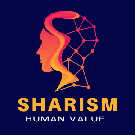Sharism and Certification
From SharismWiki
Incorporating certification into the concept of sharism underscores the importance of recognizing and sharing skills, knowledge, and expertise within a community. Here's how certification aligns with sharism principles:
Open Access to Certification Programs: Sharism supports the open access to certification programs. By making certification opportunities accessible to a wider audience, individuals have the chance to acquire recognized skills and contribute to a more skilled and knowledgeable community.
Collaborative Certification Platforms: Certification within a sharism framework involves collaborative certification platforms. These platforms can be designed to facilitate collective learning, knowledge sharing, and skill validation through shared resources and experiences.
Recognition of Diverse Skills: Sharism encourages the recognition of diverse skills and expertise. Certification programs within this framework encompass a wide range of skills, talents, and knowledge areas, reflecting the diversity within the community.
Crowdsourced Learning and Assessment: Certification processes can be crowdsourced within a sharism ecosystem. Peers and experts collaborate to create and assess certification materials, ensuring that the certification process remains inclusive and reflective of community expertise.
Global Certification Networks: Sharism in certification involves the creation of global certification networks. These networks connect individuals across borders, allowing for the exchange of skills, insights, and certification opportunities on an international scale.
Peer Certification and Endorsements: Individuals within a sharism community can provide peer certifications and endorsements. This collaborative approach allows community members to recognize and vouch for each other's skills, fostering a sense of trust and shared validation.
Shared Digital Badges and Credentials: Certification within sharism often involves the use of digital badges and credentials. These symbols of achievement are easily shareable and can be displayed across various platforms, promoting transparency and recognizing individuals for their contributions.
Continuous Learning and Recertification: Sharism emphasizes continuous learning. Certification programs within this framework may include mechanisms for ongoing learning and recertification, ensuring that skills remain up-to-date and relevant in a rapidly evolving landscape.
Community-Driven Certification Standards: Certification standards can be developed collaboratively within a sharism ecosystem. This involves community members contributing to the definition of standards, ensuring that certifications align with the needs and expectations of the community.
Inclusive Certification for Diverse Learners: Sharism promotes inclusive certification opportunities for diverse learners. This may involve accommodating different learning styles, providing resources in multiple languages, and ensuring that certification processes are accessible to individuals with various backgrounds and abilities.
Professional Development Networks: Certification in a sharism context extends beyond a mere qualification. It includes active participation in professional development networks where individuals contribute to the growth and enhancement of collective knowledge and skills.
By integrating certification into sharism, individuals are not only recognized for their accomplishments but also contribute to the collective growth and advancement of the community. This collaborative and inclusive approach to certification aligns with the principles of sharism, fostering a culture of continuous learning and shared expertise.
